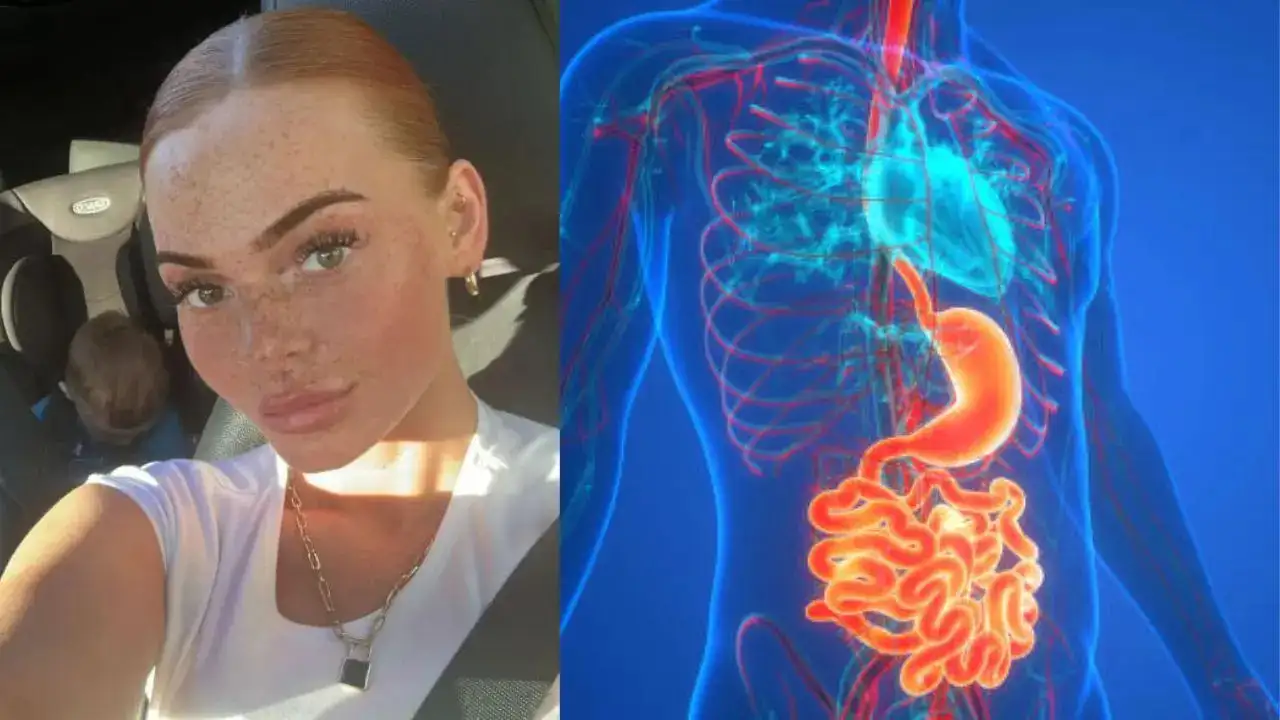
Georgia from West Yorkshire, said she was not able to eat or keep food down, constantly vomiting and feeling nauseated (Pic: Kennedy News/iStock)
A 28-year-old woman says doctors ignored her worrying symptoms as heartburn at least nine times before she was given just a year to live due to an aggressive cancer. Georgia Gardiner, a mother of one who began experiencing severe stomach cramps just out of the blue last summer, was prescribed medication for acid reflux after she was told she suffered from indigestion. However, her symptoms just kept on deteriorating, and she dropped around 20 kilograms in a couple of months.
Georgia, from West Yorkshire, said she was not able to eat or keep food down, constantly vomiting and feeling nauseated. Concerned about her deteriorating health, she visited doctors at least 8-9 times to determine the cause of her symptoms, but every time she was turned back and told to continue her tablets. "Last year in the summertime I was sick quite a lot. I couldn't keep food down and lost my appetite completely,” she said.
However, after months of running back and forth to her doctor, she was eventually referred for an endoscopy – the results of which revealed she had linitis plastica, a rare type of adenocarcinoma or stomach cancer, which is incurable. The doctors also told Georgia she had just around 12 months to live, and any further treatment would just go towards improving her quality of life. "I could only eat small amounts. I love food; I'm a massive foodie. My body was just rejecting everything. Then I was experiencing intense pains in my upper stomach; it was a sharp, constant pain,” said Georgia.
What is linitis plastica?
Linitis plastica is a descriptive term - used in the context of stomach cancer, that refers to a specific type of tumour growth pattern. Experts say it is characterised by the thickening and hardening of the stomach wall due to diffuse infiltration of cancer cells, giving it a "leather bottle" appearance.
While it is not a specific cancer type itself, linitus plastica is most commonly associated with a type of gastric adenocarcinoma – that develops from glandular cells, which are cells that produce and secrete substances like mucus or digestive juices.
Doctors say diagnosing linitus plastica can be extremely challenging as superficial biopsies do not reveal the extent of the tumour's spread. Staging requires thorough evaluation, including diagnostic laparoscopy due to the high risk of peritoneal involvement. Anyone can develop stomach cancer, but certain demographic factors may increase your risk. You are likely to get stomach cancer if:
- You are 65 years of age or over
- You are a man
- Your ethnic background is South or Central American or Eastern European
Signs and symptoms of stomach cancer
According to experts, most of the time there are no symptoms in the early stages, and even common signs like unexplained weight loss and stomach pain do not usually show up until the cancer is more advanced. A few symptoms of stomach cancer include:
- Loss of appetite
- Trouble swallowing
- Fatigue or weakness
- Nausea and vomiting
- Unexplained weight loss
- Heartburn and indigestion
- Black stool and vomiting blood
- Feeling bloated or gassy after eating
- Stomach pain, often above your belly button
- Feeling full even after eating a small meal or snack
